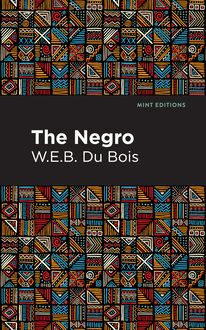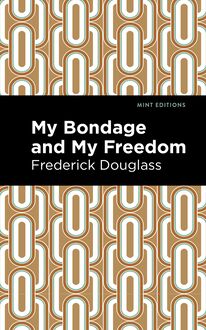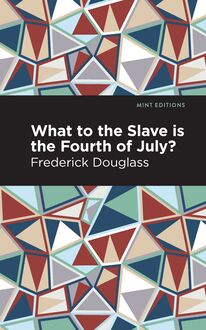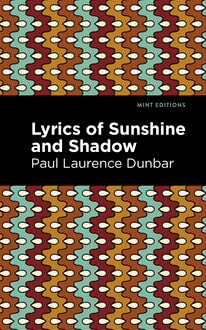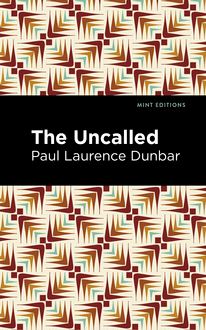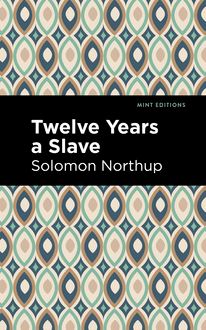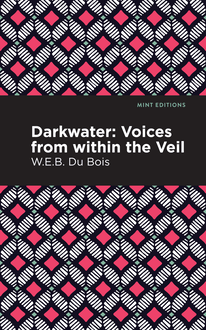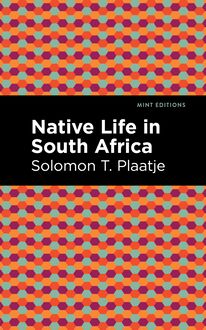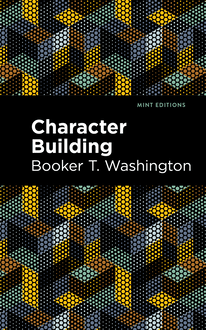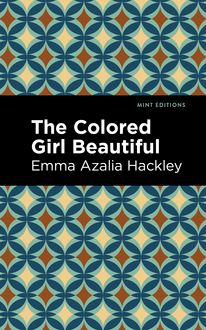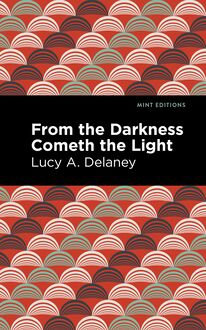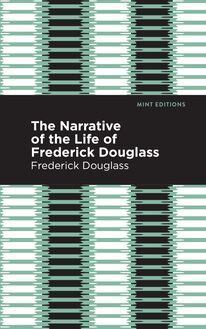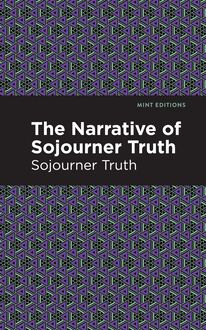-
 Univers
Univers
-
 Ebooks
Ebooks
-
 Livres audio
Livres audio
-
 Presse
Presse
-
 Podcasts
Podcasts
-
 BD
BD
-
 Documents
Documents
-
- Cours
- Révisions
- Ressources pédagogiques
- Sciences de l’éducation
- Manuels scolaires
- Langues
- Travaux de classe
- Annales de BEP
- Etudes supérieures
- Maternelle et primaire
- Fiches de lecture
- Orientation scolaire
- Méthodologie
- Corrigés de devoir
- Annales d’examens et concours
- Annales du bac
- Annales du brevet
- Rapports de stage
La lecture à portée de main
Vous pourrez modifier la taille du texte de cet ouvrage
Découvre YouScribe en t'inscrivant gratuitement
Je m'inscrisDécouvre YouScribe en t'inscrivant gratuitement
Je m'inscrisEn savoir plus
Vous pourrez modifier la taille du texte de cet ouvrage
En savoir plus

Description
Born into slavery, Clotel is a white-passing woman who conceals her identity and uses a disguise to infiltrate a plantation to rescue her loved ones. It’s a story of survival that’s deeply rooted in the cruelest part of American history.
Clotel and Althesa are the illegitimate daughters of Thomas Jefferson and a slave woman named Currer. Despite their father’s elite status, the girls are sold into slavery but attempt to use their fair complexions to their advantage. Clotel takes it a step further, dressing as a white man to emancipate her daughter who was sold against her will.
Clotel; or, The President's Daughter: A Narrative of Slave Life in the United States is an American tragedy that explores generational trauma. William Wells Brown, who’s considered the first African American novelist, uses his personal experience to illustrate the horrors of bondage. It’s a heartbreaking tale that tests the undeniable power of the human spirit.
With an eye-catching new cover, and professionally typeset manuscript, this edition of Clotel; or, The President's Daughter: A Narrative of Slave Life in the United States is both modern and readable.
Sujets
Informations
| Publié par | Mint Editions |
| Date de parution | 26 janvier 2021 |
| Nombre de lectures | 0 |
| EAN13 | 9781513276106 |
| Langue | English |
| Poids de l'ouvrage | 1 Mo |
Informations légales : prix de location à la page 0,0450€. Cette information est donnée uniquement à titre indicatif conformément à la législation en vigueur.
Extrait
The President’s Daughter
William Wells Brown
The President’s Daughter was first published in 1853.
This edition published by Mint Editions 2020.
ISBN 9781513271101 | E-ISBN 9781513276106
Published by Mint Editions®
minteditionbooks.com
Publishing Director: Jennifer Newens
Design & Production: Rachel Lopez Metzger
Project Manager: Micaela Clark
Typesetting: Westchester Publishing Services
C ONTENTS I. T HE N EGRO S ALE II. G OING TO THE S OUTH III. T HE N EGRO C HASE IV. T HE Q UADROON ’ S H OME V. T HE S LAVE M ARKET VI. T HE R ELIGIOUS T EACHER VII. T HE P OOR W HITES , S OUTH VIII. T HE S EPARATION IX. T HE M AN OF H ONOUR X. T HE Y OUNG C HRISTIAN XI. T HE P ARSON P OET XII. A N IGHT IN THE P ARSON ’ S K ITCHEN XIII. A S LAVE H UNTING P ARSON XIV. A F REE W OMAN R EDUCED TO S LAVERY XV. T O -D AY A M ISTRESS , T O -M ORROW A S LAVE XVI. D EATH OF THE P ARSON XVII. R ETALIATION XVIII. T HE L IBERATOR XIX. E SCAPE OF C LOTEL XX. A T RUE D EMOCRAT XXI. T HE C HRISTIAN ’ S D EATH XXII. A R IDE IN A S TAGE -C OACH XXIII. T RUTH S TRANGER THAN F ICTION XXIV. T HE A RREST XXV. D EATH IS F REEDOM XXVI. T HE E SCAPE XXVII. T HE M YSTERY XXVIII. T HE H APPY M EETING XXIX. C ONCLUSION
I
T HE N EGRO S ALE
“Why stands she near the auction stand,
That girl so young and fair?
What brings her to this dismal place,
Why stands she weeping there?”
With the growing population of slaves in the Southern States of America, there is a fearful increase of half whites, most of whose fathers are slaveowners and their mothers slaves. Society does not frown upon the man who sits with his mulatto child upon his knee, whilst its mother stands a slave behind his chair. The late Henry Clay, some years since, predicted that the abolition of Negro slavery would be brought about by the amalgamation of the races. John Randolph, a distinguished slaveholder of Virginia, and a prominent statesman, said in a speech in the legislature of his native state, that “the blood of the first American statesmen coursed through the veins of the slave of the South.” In all the cities and towns of the slave states, the real Negro, or clear black, does not amount to more than one in every four of the slave population. This fact is, of itself, the best evidence of the degraded and immoral condition of the relation of master and slave in the United States of America. In all the slave states, the law says:—“Slaves shall be deemed, sold (held), taken, reputed, and adjudged in law to be chattels personal in the hands of their owners and possessors, and their executors, administrators and assigns, to all intents, constructions, and purposes whatsoever. A slave is one who is in the power of a master to whom he belongs. The master may sell him, dispose of his person, his industry, and his labour. He can do nothing, possess nothing, nor acquire anything, but what must belong to his master. The slave is entirely subject to the will of his master, who may correct and chastise him, though not with unusual rigour, or so as to maim and mutilate him, or expose him to the danger of loss of life, or to cause his death. The slave, to remain a slave, must be sensible that there is no appeal from his master.” Where the slave is placed by law entirely under the control of the man who claims him, body and soul, as property, what else could be expected than the most depraved social condition? The marriage relation, the oldest and most sacred institution given to man by his Creator, is unknown and unrecognised in the slave laws of the United States. Would that we could say, that the moral and religious teaching in the slave states were better than the laws; but, alas! we cannot. A few years since, some slaveholders became a little uneasy in their minds about the rightfulness of permitting slaves to take to themselves husbands and wives, while they still had others living, and applied to their religious teachers for advice; and the following will show how this grave and important subject was treated:—
“Is a servant, whose husband or wife has been sold by his or her master into a distant country, to be permitted to marry again?”
The query was referred to a committee, who made the following report; which, after discussion, was adopted:—
“That, in view of the circumstances in which servants in this country are placed, the committee are unanimous in the opinion, that it is better to permit servants thus circumstanced to take another husband or wife.”
Such was the answer from a committee of the “Shiloh Baptist Association;” and instead of receiving light, those who asked the question were plunged into deeper darkness! A similar question was put to the “Savannah River Association,” and the answer, as the following will show, did not materially differ from the one we have already given:—
“Whether, in a case of involuntary separation, of such a character as to preclude all prospect of future intercourse, the parties ought to be allowed to marry again.”
Answer:—
“That such separation among persons situated as our slaves are, is civilly a separation by death; and they believe that, in the sight of God, it would be so viewed. To forbid second marriages in such cases would be to expose the parties, not only to stronger hardships and strong temptation, but to church-censure for acting in obedience to their masters, who cannot be expected to acquiesce in a regulation at variance with justice to the slaves, and to the spirit of that command which regulates marriage among Christians. The slaves are not free agents; and a dissolution by death is not more entirely without their consent, and beyond their control than by such separation.”
Although marriage, as the above indicates, is a matter which the slaveholders do not think is of any importance, or of any binding force with their slaves; yet it would be doing that degraded class an injustice, not to acknowledge that many of them do regard it as a sacred obligation, and show a willingness to obey the commands of God on this subject. Marriage is, indeed, the first and most important institution of human existence—the foundation of all civilisation and culture—the root of church and state. It is the most intimate covenant of heart formed among mankind; and for many persons the only relation in which they feel the true sentiments of humanity. It gives scope for every human virtue, since each of these is developed from the love and confidence which here predominate. It unites all which ennobles and beautifies life,—sympathy, kindness of will and deed, gratitude, devotion, and every delicate, intimate feeling. As the only asylum for true education, it is the first and last sanctuary of human culture. As husband and wife, through each other become conscious of complete humanity, and every human feeling, and every human virtue; so children, at their first awakening in the fond covenant of love between parents, both of whom are tenderly concerned for the same object, find an image of complete humanity leagued in free love. The spirit of love which prevails between them acts with creative power upon the young mind, and awakens every germ of goodness within it. This invisible and incalculable influence of parental life acts more upon the child than all the efforts of education, whether by means of instruction, precept, or exhortation. If this be a true picture of the vast influence for good of the institution of marriage, what must be the moral degradation of that people to whom marriage is denied? Not content with depriving them of all the higher and holier enjoyments of this relation, by degrading and darkening their souls, the slaveholder denies to his victim even that slight alleviation of his misery, which would result from the marriage relation being protected by law and public opinion. Such is the influence of slavery in the United States, that the ministers of religion, even in the so-called free states, are the mere echoes, instead of the correctors, of public sentiment. We have thought it advisable to show that the present system of chattel slavery in America undermines the entire social condition of man, so as to prepare the reader for the following narrative of slave life, in that otherwise happy and prosperous country.
In all the large towns in the Southern States, there is a class of slaves who are permitted to hire their time of their owners, and for which they pay a high price. These are mulatto women, or quadroons, as they are familiarly known, and are distinguished for their fascinating beauty. The handsomest usually pays the highest price for her time. Many of these women are the favourites of persons who furnish them with the means of paying their owners, and not a few are dressed in the most extravagant manner. Reader, when you take into consideration the fact, that amongst the slave population no safeguard is thrown around virtue, and no inducement held out to slave women to be chaste, you will not be surprised when we tell you that immorality and vice pervade the cities of the Southern States in a manner unknown in the cities and towns of the Northern States. Indeed most of the slave women have no higher aspiration than that of becoming the finely-dressed mistress of some white man. And at Negro balls and parties, this class of women usually cut the greatest figure.
At the close of the year, the following advertisement appeared in a newspaper published in Richmond, the capital of the state of Virginia:—“Notice: Thirty-eight Negroes will be offered for sale on Monday, November 10th, at twelve o’clock, being the entire stock of the late John Graves, Esq. The Negroes are in good condition, some of them very prime; among them are several mechanics, able-bodied field hands, ploughboys, and women with children at the breast, and some of them very prolific in their generating qualities, affording a rare opportunity to any one who wishes to raise a strong and healthy lot of servants for their own
-
 Univers
Univers
-
 Ebooks
Ebooks
-
 Livres audio
Livres audio
-
 Presse
Presse
-
 Podcasts
Podcasts
-
 BD
BD
-
 Documents
Documents
-
Jeunesse
-
Littérature
-
Ressources professionnelles
-
Santé et bien-être
-
Savoirs
-
Education
-
Loisirs et hobbies
-
Art, musique et cinéma
-
Actualité et débat de société
-
Jeunesse
-
Littérature
-
Ressources professionnelles
-
Santé et bien-être
-
Savoirs
-
Education
-
Loisirs et hobbies
-
Art, musique et cinéma
-
Actualité et débat de société
-
Actualités
-
Lifestyle
-
Presse jeunesse
-
Presse professionnelle
-
Pratique
-
Presse sportive
-
Presse internationale
-
Culture & Médias
-
Action et Aventures
-
Science-fiction et Fantasy
-
Société
-
Jeunesse
-
Littérature
-
Ressources professionnelles
-
Santé et bien-être
-
Savoirs
-
Education
-
Loisirs et hobbies
-
Art, musique et cinéma
-
Actualité et débat de société
- Cours
- Révisions
- Ressources pédagogiques
- Sciences de l’éducation
- Manuels scolaires
- Langues
- Travaux de classe
- Annales de BEP
- Etudes supérieures
- Maternelle et primaire
- Fiches de lecture
- Orientation scolaire
- Méthodologie
- Corrigés de devoir
- Annales d’examens et concours
- Annales du bac
- Annales du brevet
- Rapports de stage
